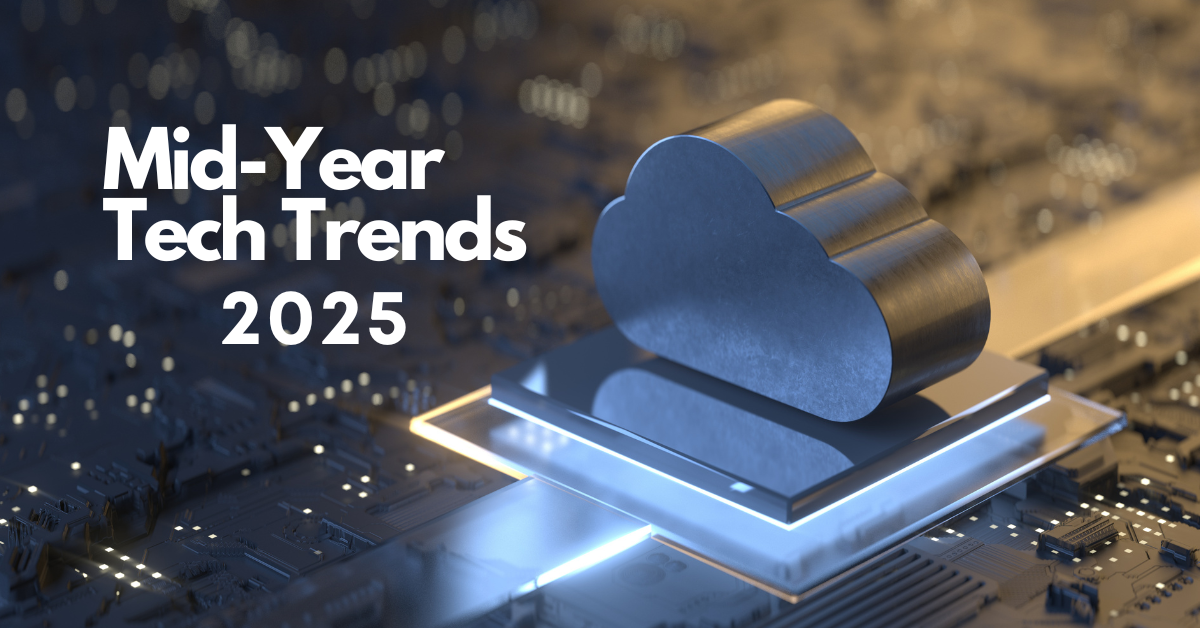
The 2025 Mid-Year Tech Review: Tools, Trends, and What’s Next
As we reach the midpoint of 2025, the tech landscape for remote and hybrid teams is evolving faster than ever. The way we work is being reshaped by new tools, smarter automation, and a growing emphasis on productivity with flexibility. For tech leaders, HR managers, and operations leads across the GCC—including the UAE, Saudi Arabia, and the wider Gulf region—keeping up with these trends isn’t optional. It’s essential for staying competitive and building resilient, distributed teams.
The Gulf region has unique workforce challenges and opportunities. With international expansion, diverse workweeks, and growing compliance regulations, managing productivity across borders is no longer just about tracking hours—it’s about optimizing performance while respecting culture, privacy, and well-being.
This 2025 Mid-Year Tech Review dives into the tools, trends, and technologies shaping remote and hybrid work in the Gulf. Whether you're scaling a startup, leading a digital agency, or managing a distributed tech team, these insights will help you navigate the second half of the year.
Remote and Hybrid Work: The New GCC Standard
Remote and hybrid work have officially become the norm in 2025, especially in the Gulf region. According to Buffer’s State of Remote Work 2025, 68% of remote workers globally report being fully remote. In the UAE and Saudi Arabia, hybrid models dominate, with most companies offering flexible work options to attract and retain top talent.
But flexibility comes with new leadership challenges:
- Tracking productivity fairly across remote and office setups
- Preventing overwork and burnout in high-growth teams
- Maintaining collaboration across multiple time zones
For Gulf-based tech leaders, cultural factors also play a role. Trust-based management is rising, but leaders still need systems that ensure transparency and accountability—without micromanagement. That’s where smarter tools come in.
Smarter Time Tracking: From Hours to Insights
Traditional time tracking is out. In 2025, teams demand flexible, insight-driven time management tools that focus on outcomes—not micromanaging inputs.
ClockBoost leads this shift by offering:
- Automatic time tracking that runs quietly in the background
- Role-based, optional screenshots for transparency without surveillance
- KPI dashboards that highlight productivity trends over time
- Seamless integration with Jira, Trello, Asana, GitHub, and Google Workspace
For Gulf HR teams and operations leads, this means less time chasing timesheets and more time analyzing meaningful patterns. It also helps remote teams avoid burnout by spotting overwork early—a key issue in high-growth sectors like fintech, SaaS, and digital services.
AI-Powered Project and Team Management
AI has become essential for project and workload management. In 2025, platforms like Asana AI, Trello Smart Cards, and Monday.com Predictive Workflows offer:
- Smart task assignments based on real-time capacity
- Deadline forecasting using historical project data
- AI-generated status reports that reduce unnecessary meetings
For Gulf-region teams managing cross-border projects, these features help leaders prioritize tasks without creating excessive administrative work.
The Rise of Async Communication
The era of back-to-back video calls is fading. In 2025, asynchronous communication (async) is the norm for efficient remote work.
Platforms like Slack, Zoom, Team Chat, and Loom support:
- Async video updates to replace live standups
- AI meeting summaries to capture key points and action items
- Focus modes to minimize notification fatigue during deep work
For GCC teams, where different countries have varied weekends and working hours, async tools ensure smooth collaboration without forcing everyone online at the same time.
KPI Dashboards: Data-Driven Leadership
Data is only valuable if it leads to action. KPI dashboards help managers turn raw data into insights.
ClockBoost’s KPI dashboard allows leaders to:
- Track billable vs. non-billable hours
- Identify workflow bottlenecks
- Analyze long-term productivity trends
This enables teams to course-correct before issues escalate, aligning well with Gulf-region businesses’ push toward transparent, fair performance management.
Emerging Trends to Watch in H2 2025
Looking ahead to the rest of the year, here are the trends reshaping remote and hybrid work:
AI for Employee Well-Being
AI is no longer just automating tasks—it’s directly supporting employee health and productivity. New AI features include:
- Burnout detection through idle-time tracking and overwork alerts
- Balanced workload recommendations for fair team distribution
- Learning prompts that suggest upskilling opportunities based on usage patterns
For Gulf-region companies, especially those expanding across borders, these tools help prevent burnout while fostering growth.
A great example is AI-driven tools suggesting adjustments when a team in Dubai logs excessive overtime compared to a team in Riyadh—helping leadership rebalance workloads.
According to Gartner’s Future of Work Trends 2025, AI enablement is one of the top strategic focuses for tech teams globally and is rapidly being adopted across the Gulf.
Privacy-First Monitoring
In 2025, compliance is critical, especially in the GCC with Saudi Arabia’s PDPL and the UAE’s Data Protection Law.
Leaders demand solutions that:
- Allow employees to control what data is tracked
- Provide clear data policies and audit trails
- Stay compliant with regional and global data protection laws
ClockBoost offers role-based privacy controls, ensuring that monitoring is ethical, secure, and flexible—something not all global competitors provide.
Customizable Workflows & No-Code Integration
In 2025, teams want tools that fit their workflows, not force them to change processes. No-code integrations and automation builders are now standard.
Benefits include:
- Custom dashboards tailored to department goals
- Automated reporting for finance, HR, or operations
- Integration with existing Gulf-region tech stacks through APIs
For example, a marketing team in Dubai can track campaign hours and sync data to invoicing tools, while a development team in Jeddah links ClockBoost directly to GitHub sprint boards.
What’s Next for GCC Tech Teams?
As we enter the second half of 2025, Gulf-region companies are focusing on:
- Operational efficiency
- Employee well-being and retention
- Transparent, data-driven management
The best tech tools now:
- Empower remote and hybrid teams without micromanagement
- Provide real-time productivity insights without invasive monitoring
- Respect compliance and regional privacy laws
Platforms like ClockBoost are at the center of this shift, helping tech teams across the GCC optimize performance while maintaining trust and flexibility.
Further Reading & Resources
For more insights on remote work trends and tech adoption in 2025, check out these reports and articles:
- Auxilium Services: Key Trends in Remote Workforce Solutions in the GCC (2025)
- Borderless AI: Global Hiring Trends Mid-Year Report (2025)
- Splashtop: Remote Work Trends 2025
- OysterHR: Status of Remote Work in 2025
- Bayt.com: Remote Work or Office? The Future of Work in the GCC






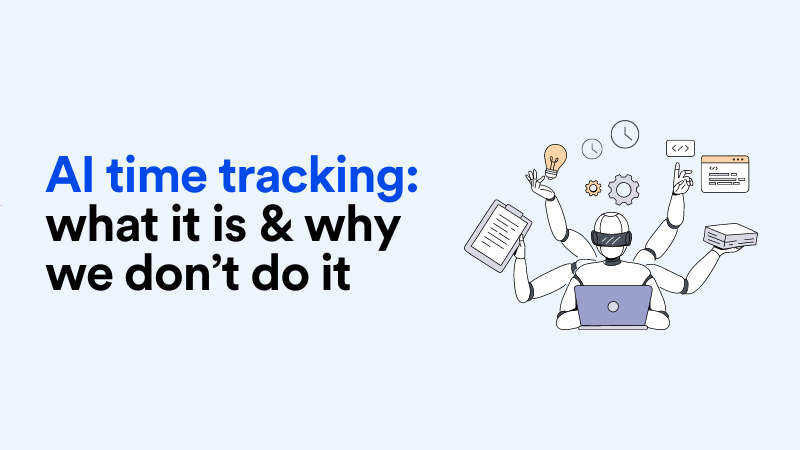



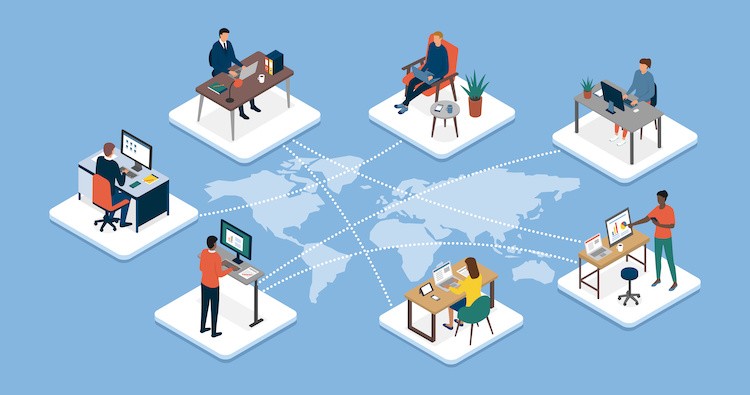






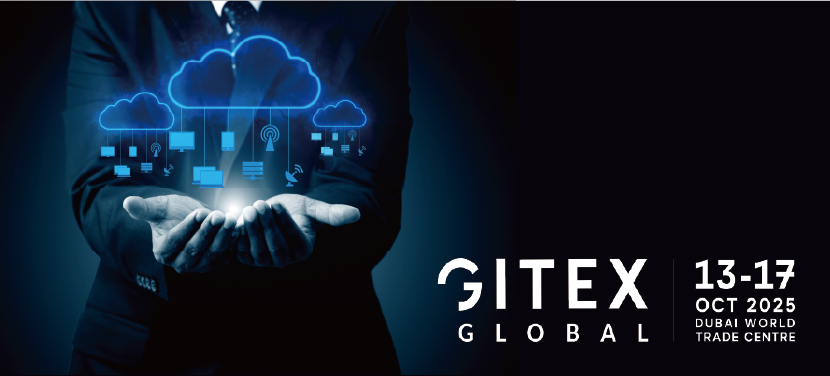
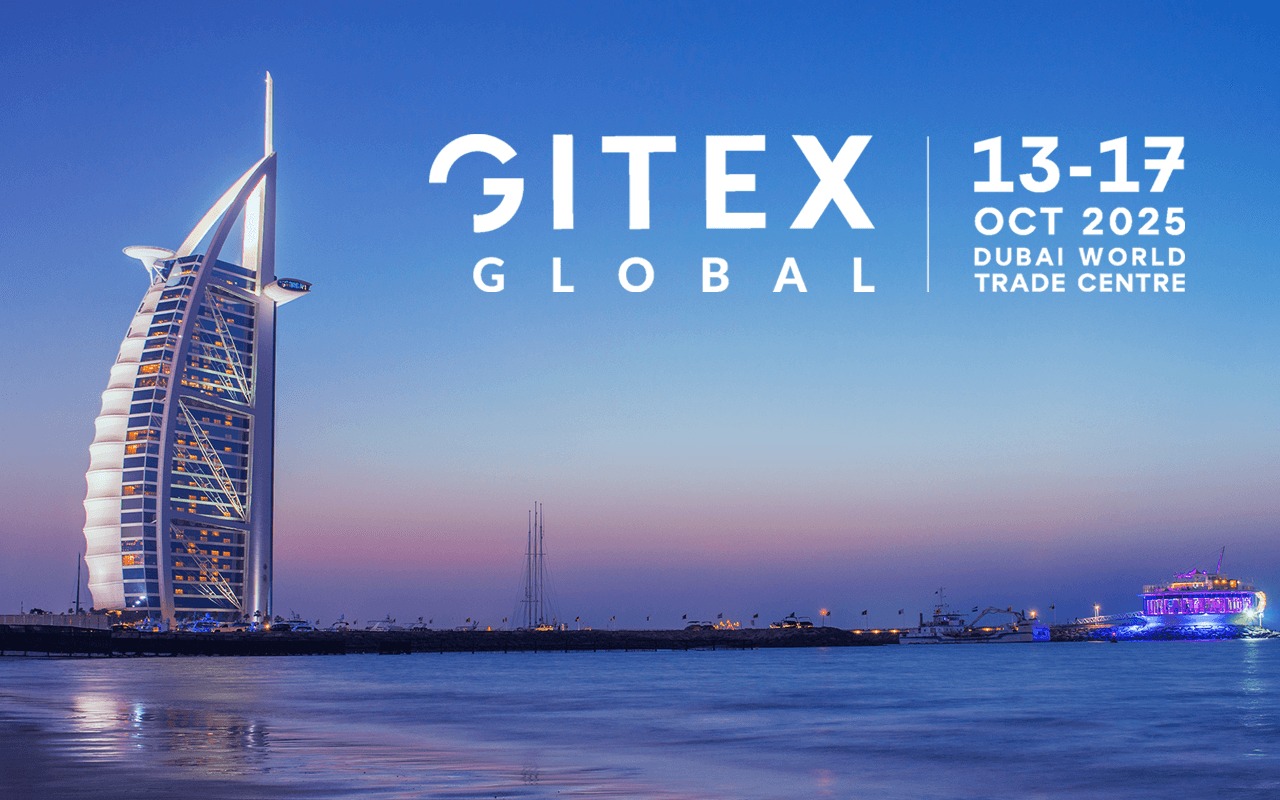


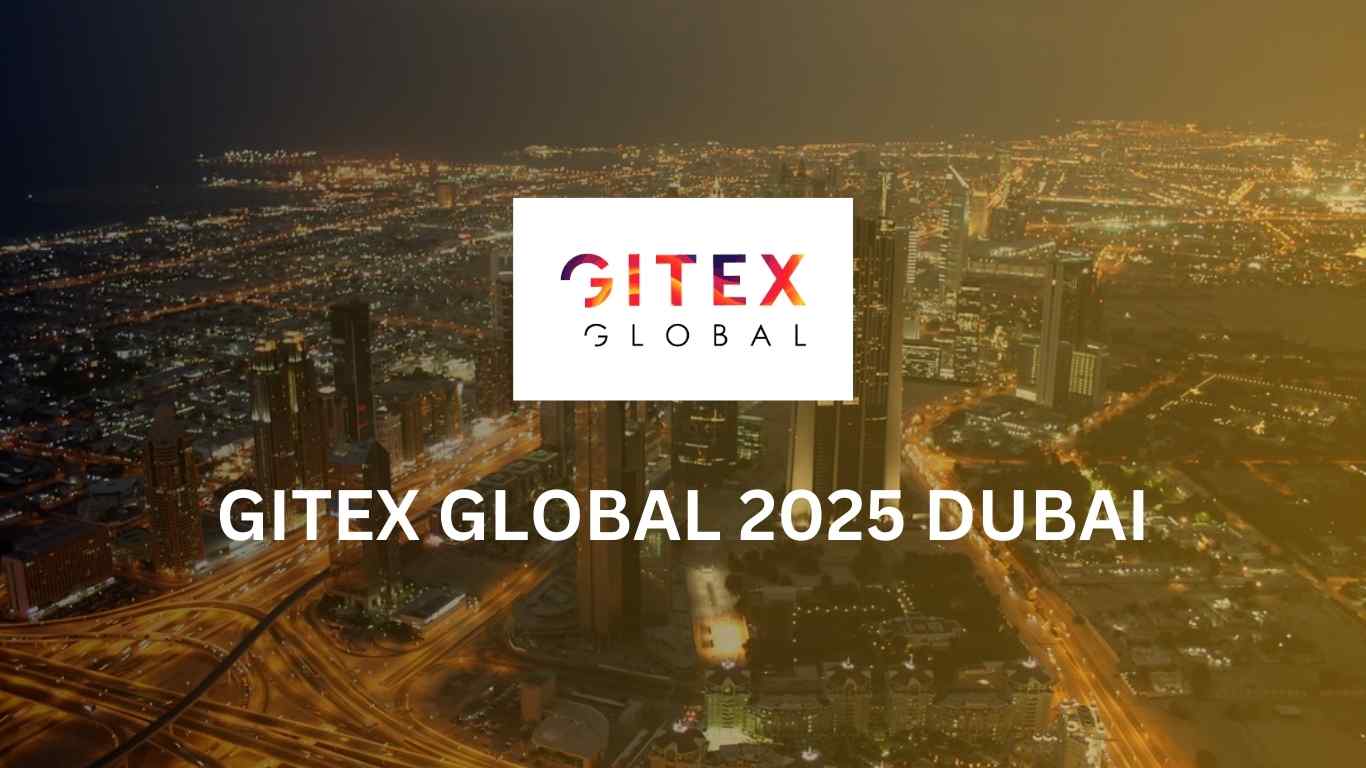

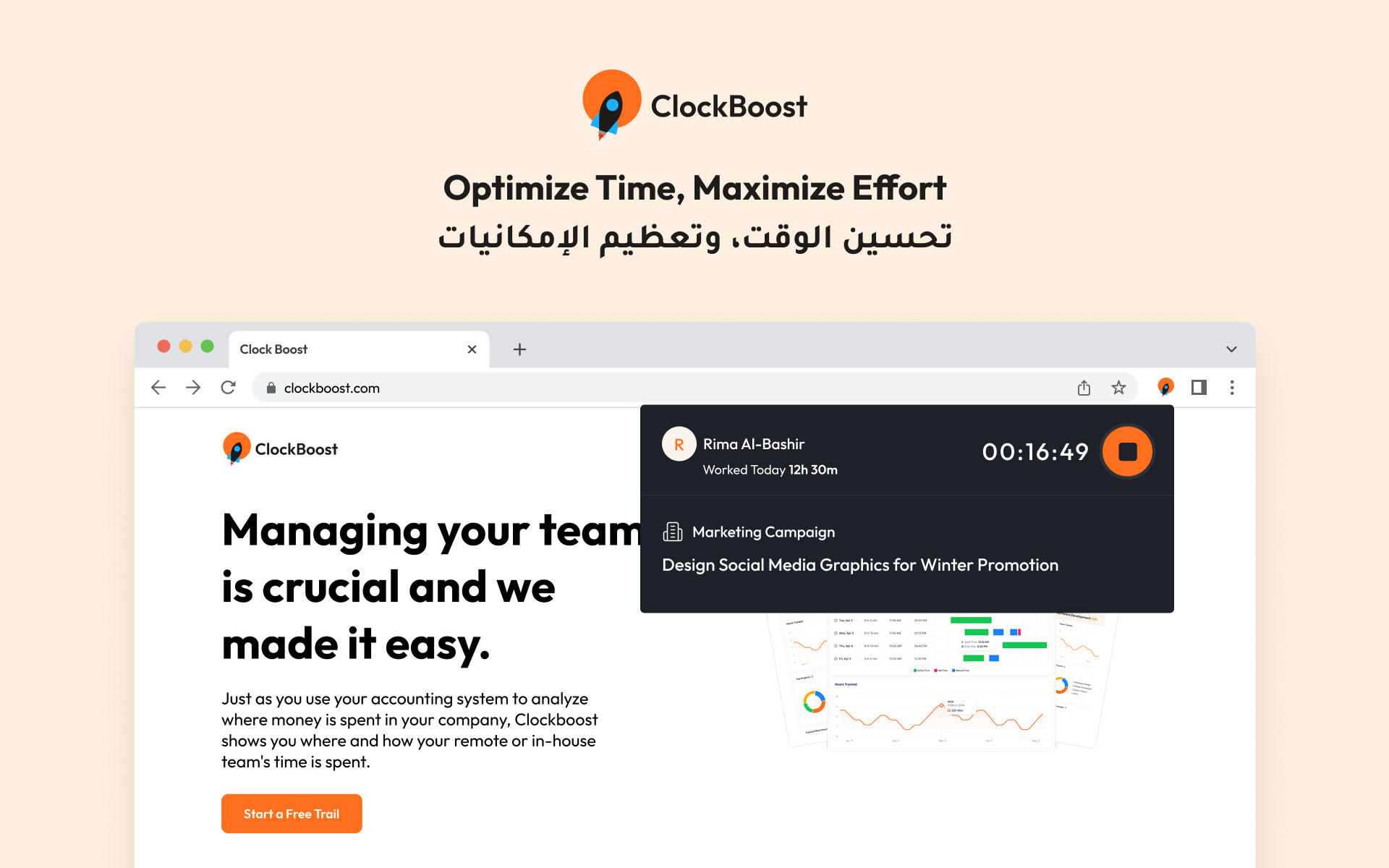





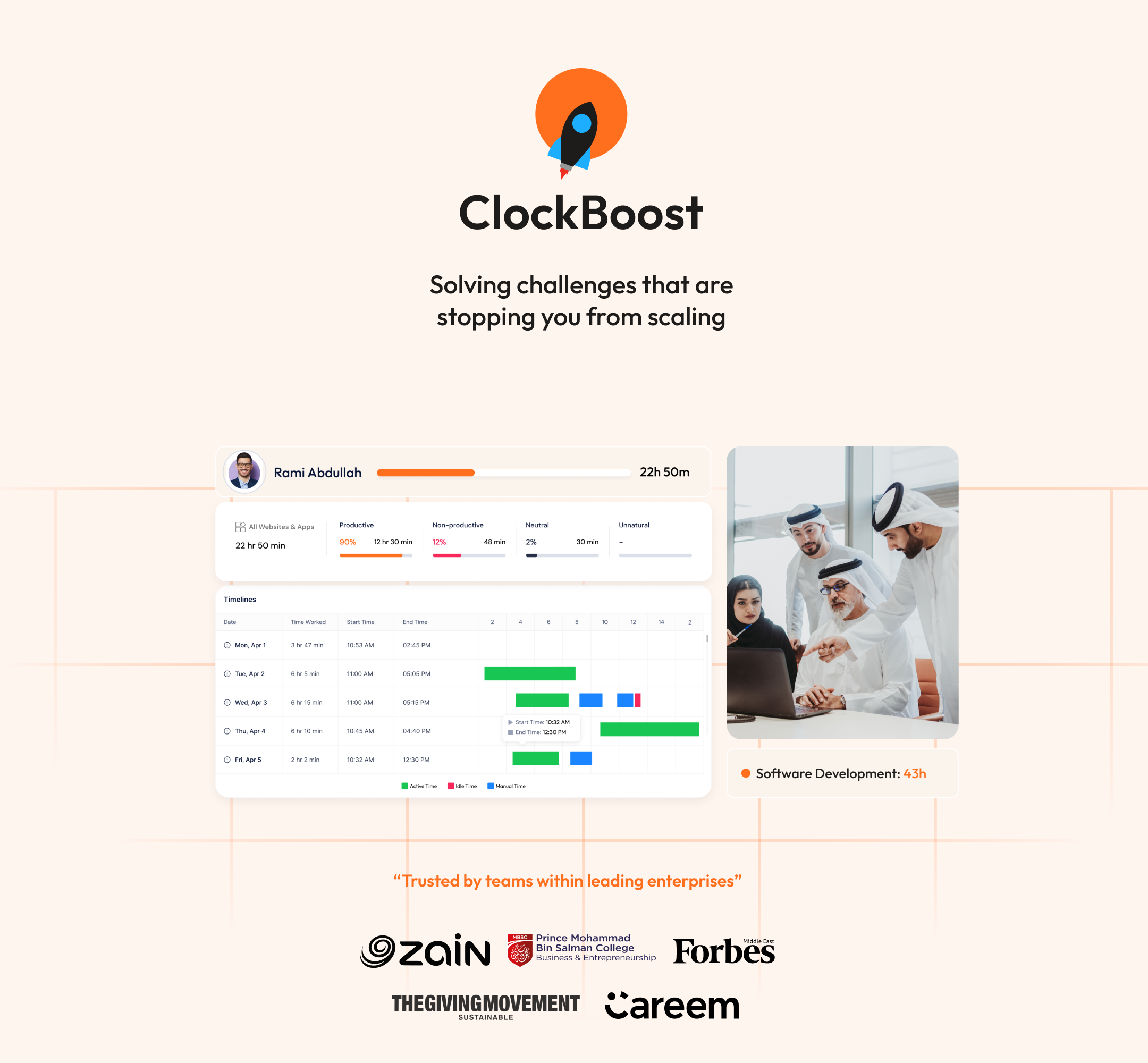

.png)

